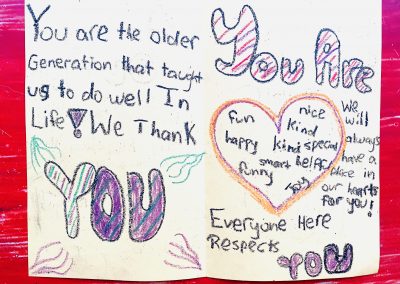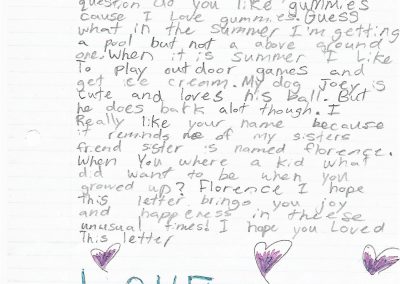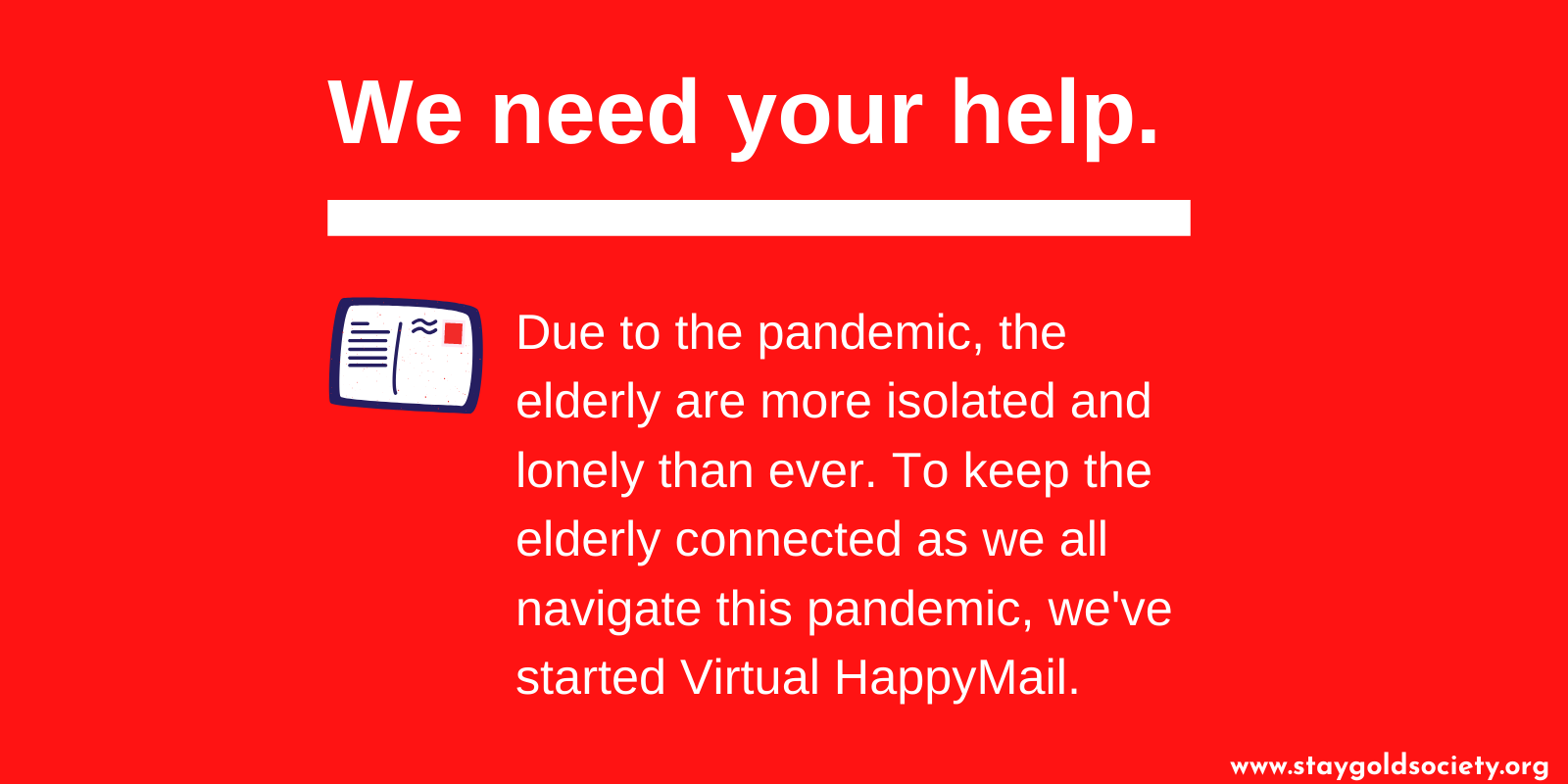
About Virtual HappyMail:
Due to the COVID-19 pandemic, the elderly are more isolated and lonely than ever, and those in long term care and retirement homes are the most at-risk population to the virus (Harnett).
How can we help?
Although we cannot extend a hand in comfort right now or offer a much-needed hug, we can offer kindness and encouragement in the form of letters and artwork.
To bring joy and hope to the elderly as we all navigate this pandemic, the Stay Gold Society, led by 16-year-old Emily Truman from Lakeshore, Ontario, Canada, has started Virtual HappyMail.
Through the Virtual HappyMail program, the Stay Gold Society is calling on individuals worldwide to write letters of hope, encouragement and kindness to seniors in long-term care and retirement homes, as well as those who are home-bound.
Artwork from children and adults is also encouraged.
It’s as simple as 1, 2, 3: write (or draw), scan and send.
Letters can be addressed generally, i.e. “Hello there,” or “Dear friend,”. Handwritten letters are encouraged, however typed notes are also accepted.
Handwritten letters are to be scanned- the Stay Gold Society recommends using the Notes app scanning function if you can, or photographed and submitted via email to the Stay Gold Society. All mail will be forwarded to long-term care and retirement homes or Meals on Wheels staff.
The response to the program so far has been amazing. Letters from around the world, including Iceland, Belgium, Slovenia and Argentina, have been submitted for distribution.
Among those participating are doctors, school groups, parents and young children. The amazing response to the Virtual HappyMail program reflects the strong desire that the community has to connect with one another and the desire to spread kindness and joy despite these challenging circumstances.
A Word From Our Founder: Connecting With the Elderly in the Age of COVID-19
Read Founder Emily Truman’s Op-Ed
On Ageism:
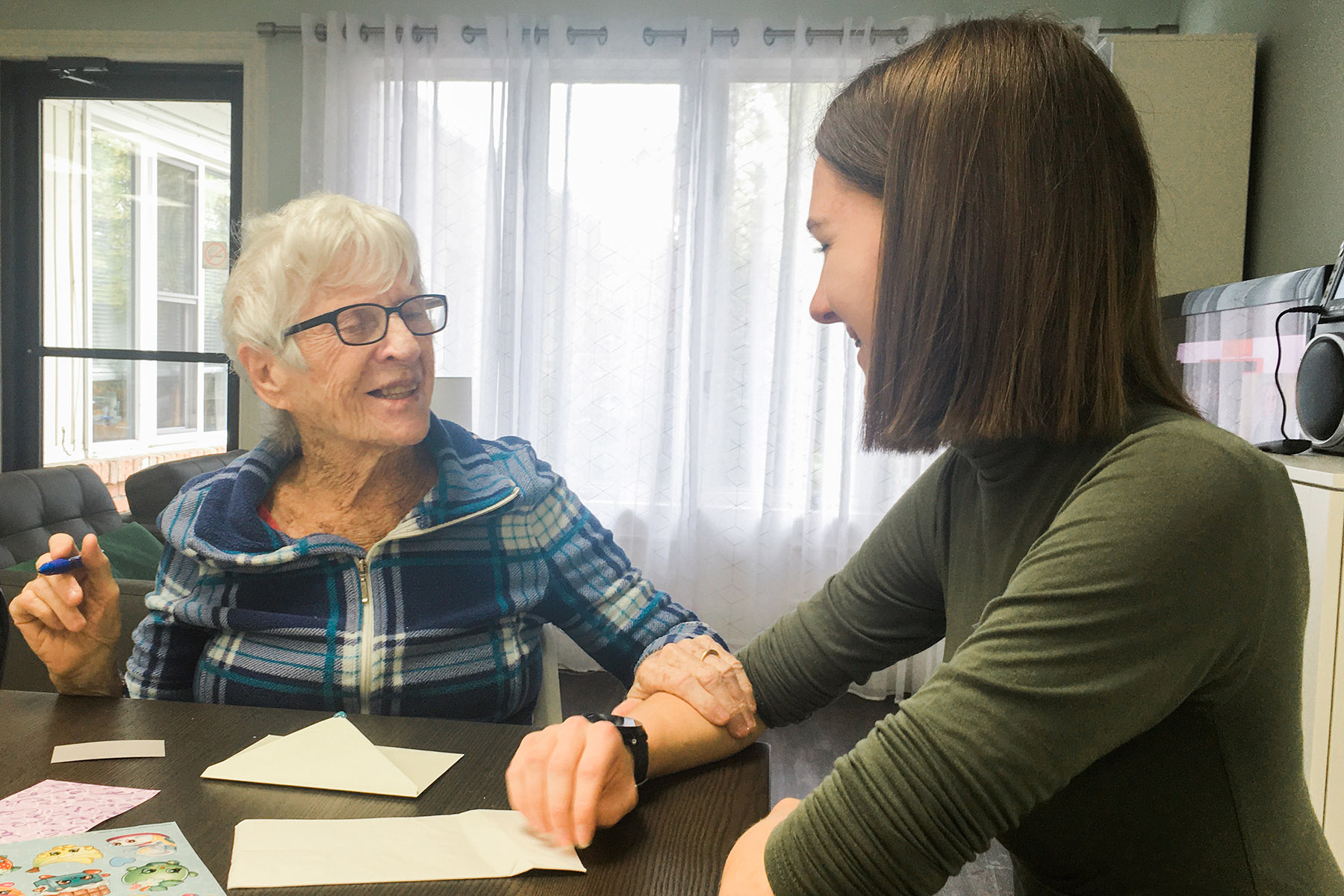
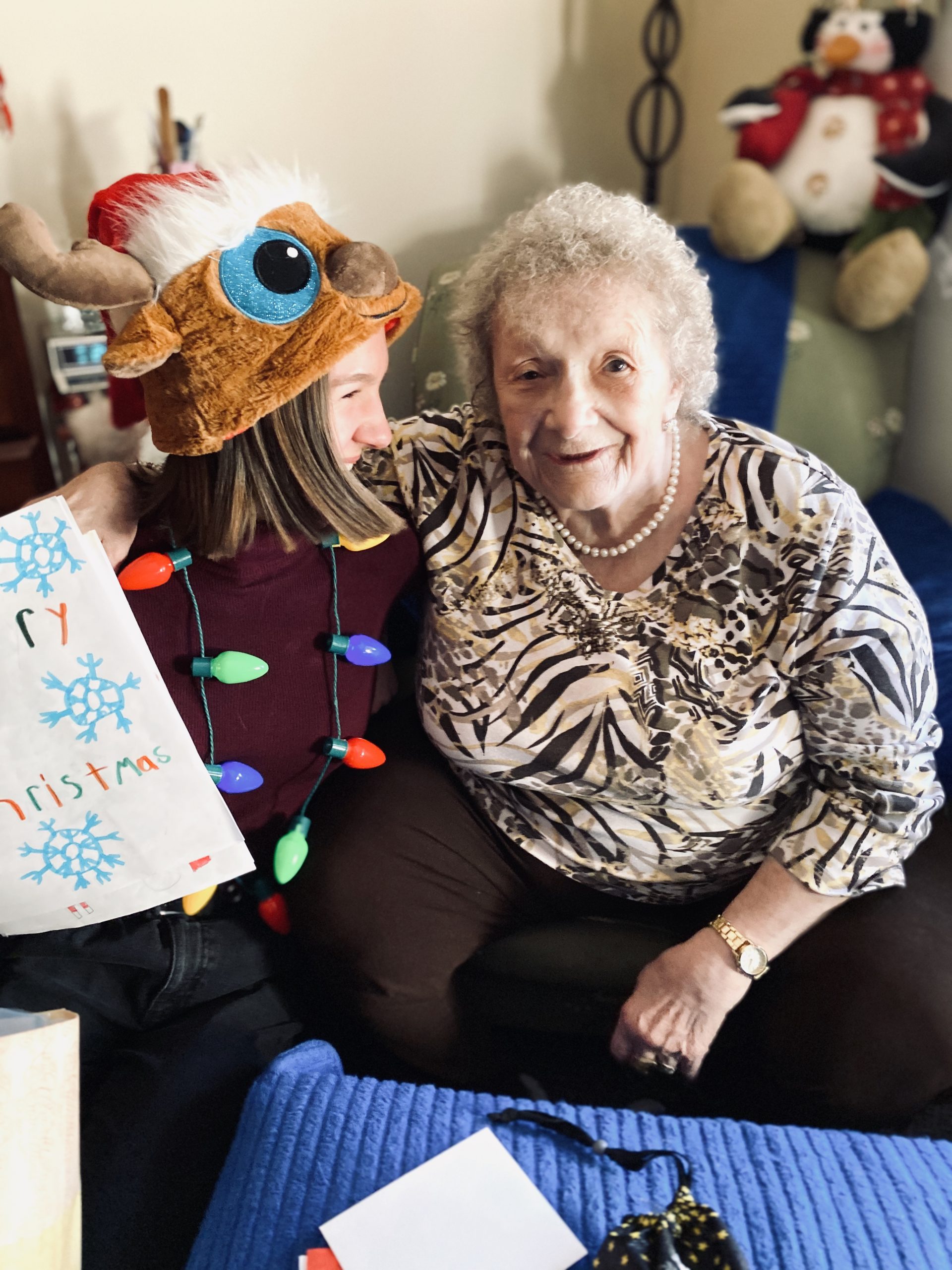

Philosophizing on Ageism
A response to André Picard’s “‘Human rights don’t have a best-before date’: COVID-19 lays bare rampant ageism” from The Globe and Mail
As a dedicated volunteer at a nursing home, I appreciate Mr. Picard’s advocacy for seniors during this pandemic. That said, some wording in the article, while well-intentioned, directly contradicts main point of the article.
I extend my deepest condolences to Mr Fox’s family. It sounds as though he was a wonderful man, and his community involvement was highly commendable.
I do think, however, that in correlating his value as a community member with his ability to volunteer, Andre unintentionally devalued the lives of the many seniors who, in all truth, cannot contribute to the community in such a way.
The seniors living at the nursing home that I volunteer at often do fit the most or all of the attributes of the “elderly” label that Andre is so quick to dispel. They are physically weak, and many experience degrees of memory loss.
At 104 years old, Agnes is slow to move about her room, and requires a great deal of care. At 95, Lucy is no spring chicken. She requires a walker, and her short-term memory is unreliable at best. Lucy has befriended Paula, two doors down from her. The two laugh like young schoolgirls over stories of their wild youths, and amble slowly down the halls at 3pm to see if lunch is ready to be served, having forgotten that they have already had their meal three hours prior.
Lucy regales me with stories of war-torn Europe, about the young chicken that her mother nursed back to health by storing it in her bra for a day and feeding it from an eye dropper with utmost care. She tells me of her world travels, and the many, many volumes of novels read.
Margot can’t remember my name, but lights up each time I come for a visit. She’s always making the PSWs who work so hard to care for her feel appreciated, and makes friends with almost everyone who passes through the nursing home’s doors.
Her life, too, is invaluable and precious. She too is deserving of the highest degree of respect for her personhood.
The truth is, the term elderly and all implications inherent with its use are often quite accurate. The old do often get weak, and unable to contribute in ways that they did in their younger years.
In defending the value of the lives of older persons based on the merit of their continued community involvement, the underlying message in Mr. Picard’s piece actually supports a dehumanizing view of the elderly- that because of their inability to give back through volunteer work or economic contribution, they lose value as human beings.
We as a nation need to take a hard look at the way that we view the seniors, and those who are described as elderly.
There is immense value in their lives, regardless of their ability to continue to contribute in conventional ways, that shouldn’t have to be defended.
Many Canadian citizens can be accurately described as elderly. That shouldn’t be seen as derogatory. It’s a statement of fact. The issue is not the use of this term. It is that we as a society do not adequately value the lives of those whom the term describes.
Other Ways to Connect With the Elderly
Window Visits: Make a sign and wave in the windows to the seniors in a local nursing home. It’s sure to brigten their day (Weber)!
FaceTime Calls: Many nursing homes are encouraging individuals to volunteer to visit their residents via video call.
Grocery Deliveries: For seniors who are home-bound, and without family support networks, weekly grocery delivers from volunteers are essential (City News Service).
Reflecting on the Virtual HappyMail Campaign
Works Cited:
City News Service. Volunteer Program Helps Perfect Strangers Deliver Meals, Medications to Those at Risk of COVID-19. NBC Los Angeles, August 17, 2020. https://www.nbclosangeles.com/news/local/volunteer-program-helps-perfect-strangers-deliver-meals-medications-to-those-at-risk-of-covid-19/2414281 . Accessed August 28, 2020.
Harnett, Cindy. “Feelings of loss, desperation grow; advocates urge easing of visits to care homes”. Times Colonist, 31 May, 2020. https://cbs12.com/news/local/long-term-care-families-settle-for-window-chats-hope-for-in-person-visits-soon . Accessed August 28, 2020.
Mitchell, Alanna. “Fear and exhaustion: Working as a PSW in long-term care during the coronavirus”. Maclean’s, 7 April, 2020. www.macleans.ca/society/fear-and-exhaustion-working-as-a-psw-in-long-term-care-during-the-coronavirus/. Accessed April 30, 2020.
Cacioppo JT and Cacioppo S. The growing problem of loneliness. Lancet, 2018, https://pubmed.ncbi.nlm.nih.gov/29407030/. Accessed August 27, 2020.
Weber, Chuck. Long-term care families settle for window chats, hope for in-person visits soon. CBS12 News, 28 August, 2020. https://cbs12.com/news/local/long-term-care-families-settle-for-window-chats-hope-for-in-person-visits-soon . Accessed August 28, 2020.

